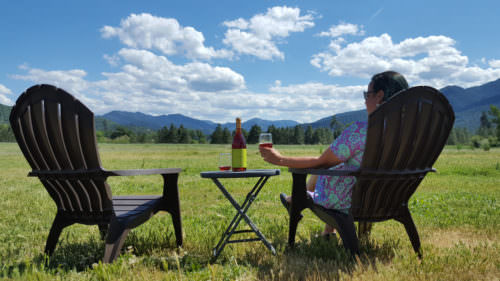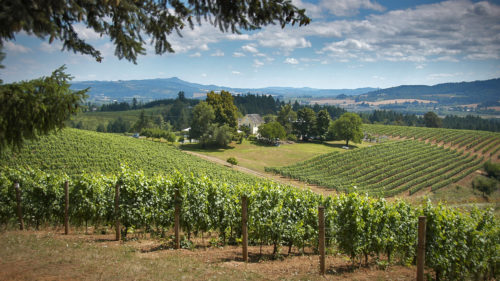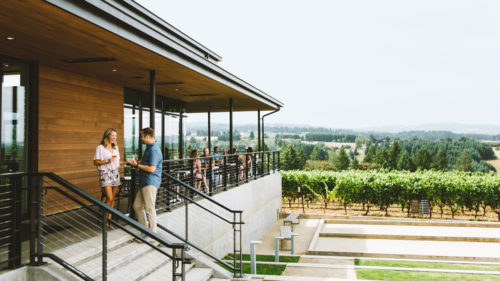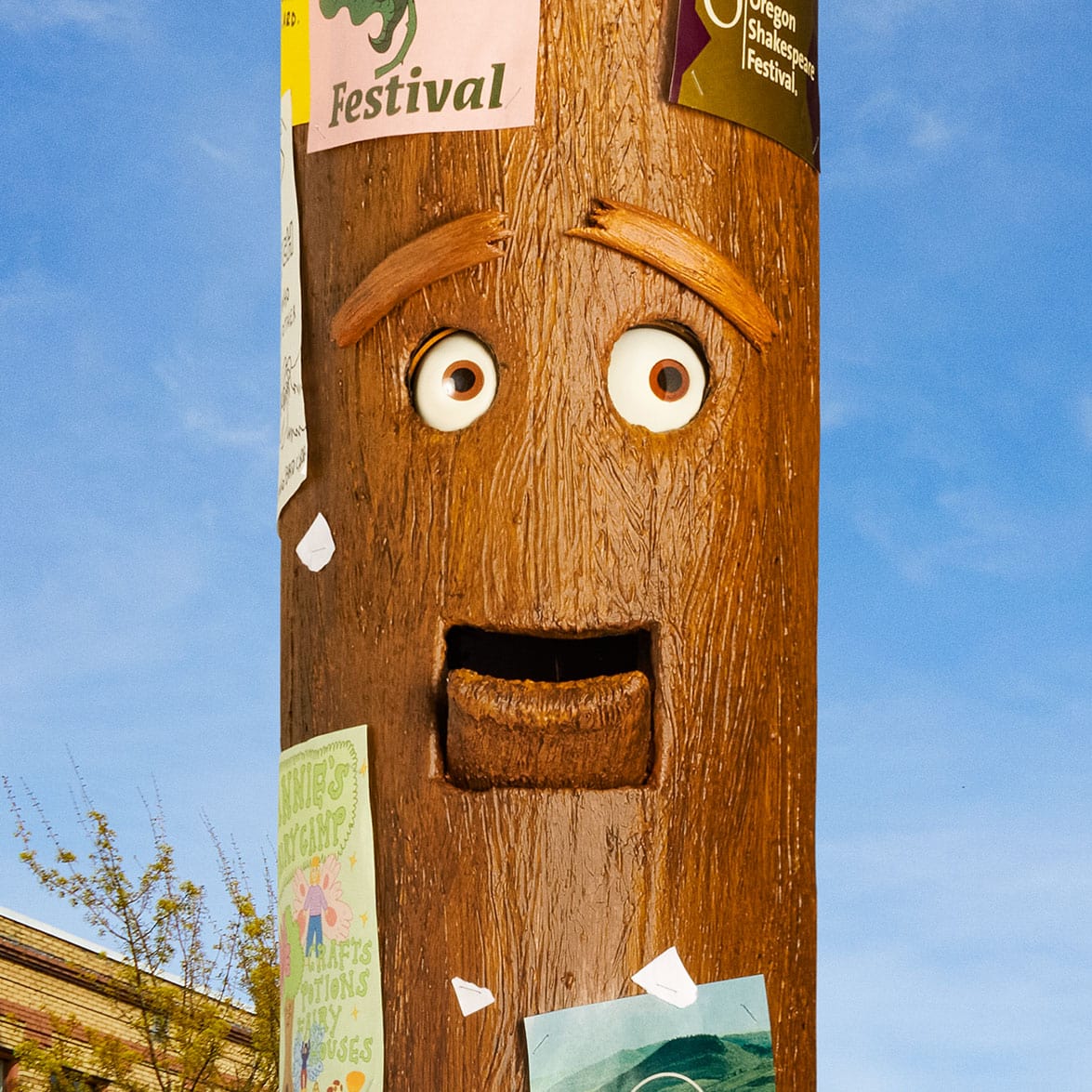Biodynamically Delicious
The biggest movement is toward biodynamic wines, as Oregon now produces more than half of the biodynamic wines in the United States — a feat that’s attracted national attention. Oregon is now home to 15 certified biodynamic vineyards, compared to just a handful a few years ago. These wines are said to be more consistent and to more truly reflect the character of the terroir. Intrigued? Here’s your guide to Oregon’s eco-friendly wineries and why they’re worth exploring from the tasting room or the comfort of your own home.
Many of Oregon’s wineries produce world-class wines that are not just delightful to drink — they also have a lighter footprint on the environment. In fact, Oregon has the highest percentage of third-party, certified-sustainable grape growers of any region in the world. They come with a variety of distinctions that are handy to know. Here are some of the most popular designations:
Natural
No certification involved, this category includes any wines that have been fermented spontaneously with native yeast. They contain only trace amounts of added sulfites and have the bare minimum of winemaker intervention. Since they are not filtered or fined they may appear cloudy. The winemakers may use organic or biodynamic practices but choose not to pursue certification.
USDA-certified organic
Organic grapes are grown without the use of synthetic fertilizers, and all ingredients — including yeast — are certified organic. No sulfites may be added except those that occur naturally. Only these wines may display the USDA organic seal. (Wines can also be made with organically grown grapes, when the grapes and the winemaking facility must be certified organic but not the additional ingredients.)
Demeter USA-certified biodynamic
All biodynamic wines are also certified organic, but have additional strict requirements focused on solutions for vineyard disease, pest and weed control as well as water conservation and biodiversity.
LIVE certified
LIVE (Low-Impact Viticulture and Enology) certification goes beyond the wine and grapes to promote socially responsible winegrowing and minimizing environmental practices for the entire production, including landscaping, building operations, labor practices and packaging. These wines are often also organic or biodynamic and Salmon-Safe.
Oregon Tilth-certified Salmon-Safe
This set of standards focuses on water quality protection so salmon can thrive in local waterways. These wines may also be organic, biodynamic or LIVE certified.
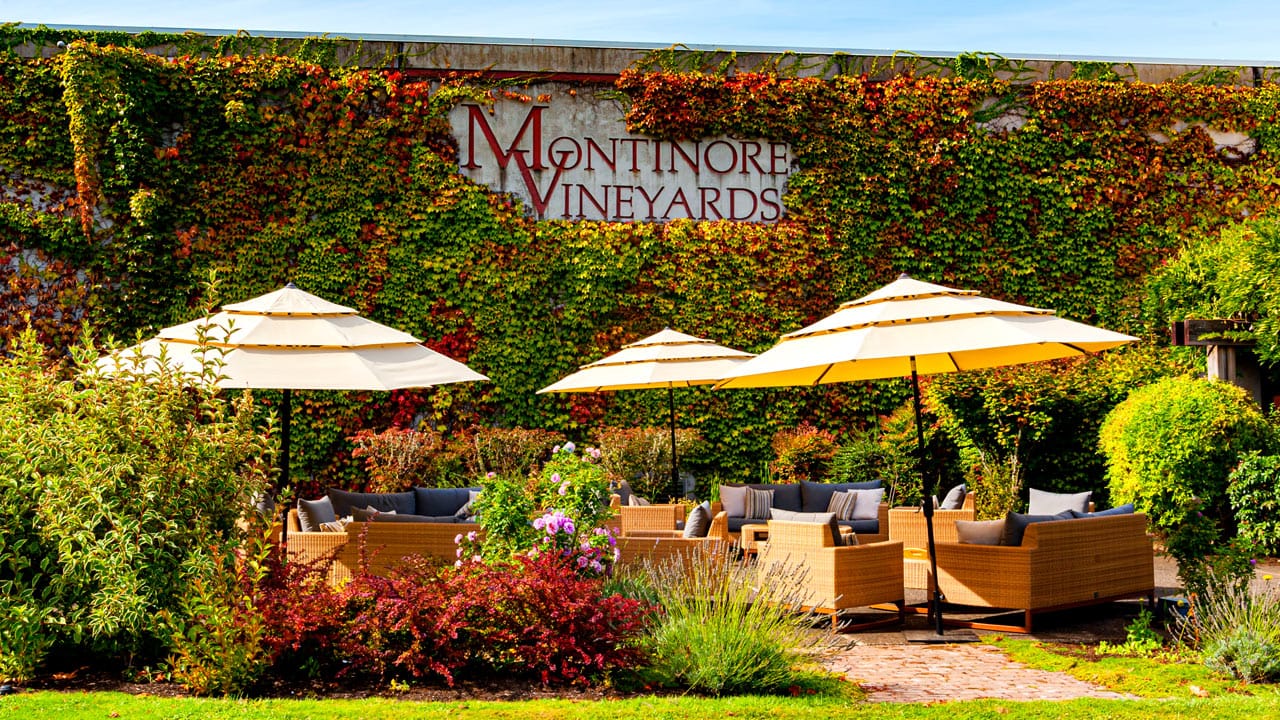
North Willamette Valley
Montinore Estate in Forest Grove (Tualatin Valley, Portland Region) is one of the rock stars of biodynamic winemaking in Oregon, with more than 200 acres of biodynamic and organic vineyards. Winery partner Rudy Marchesi began adopting biodynamic practices in the early 2000s and became certified in 2008. Montinore is now one of the country’s largest producers of estate wines made from biodynamic grapes. Learn more about the process at Montinore’s lovely estate tasting room, and sip a flight of their Italian-style reds, pinot noirs and other varietals to see if you can taste the biodynamic difference. Picnics are encouraged.
Celebrate these biodynamic wineries nearby: Beaux Frères, Bergström Wines and Brick House Vineyard in Newberg; Cooper Mountain Vineyards and Fullerton Wines in Beaverton; Maysara Winery and Youngberg Hill in McMinnville; Ponzi Vineyards in Sherwood; Soter Vineyards and Dominio IV in Carlton; and Winderlea Vineyard & Winery in Dundee. Soter, for instance, has since 2009 donated $1 from each bottle of their Planet Oregon pinot noir to the Oregon Environmental Countil to support the nonprofit’s work towards climate resilience as they collaborate with with legislators, elected officials, business owners and farmers throughout the state.
Also don’t miss: Sokol Blosser Winery in Dundee and Stoller Family Estate in Dayton, both of which are LEED-certified and certified B-Corp businesses. Sokol Blosser’s eco-friendly practices include a battery-recycling program, organic vineyard farming, maintaining birdhouses as part of the Prescott Bluebird Recovery Project and keeping beehives for honey harvesting. Stoller prides itself on its energy efficiency, as the first winery in the Pacific Northwest to use solar panels — now a growing practice. Stoller is also dedicated to preserving local ecology, housing one of the largest private oak savannas in the Pacific Northwest.
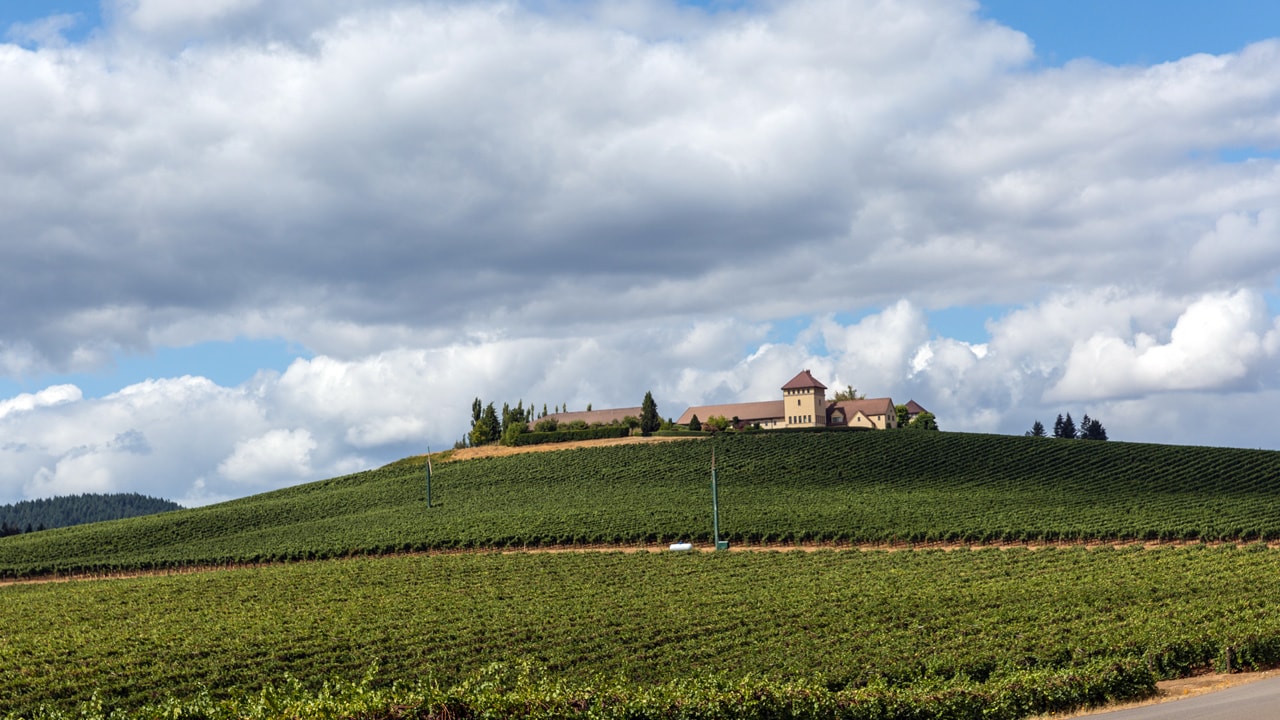
Mid- and South Willamette Valley
King Estate Winery in Eugene is another beacon in Oregon’s eco-friendly winery landscape, with 30 acres of organic gardens and orchards (pears, plums, apples, raspberries and more), an acre of lavender and bees that produce about 100 pounds of honey each year. The vintner deters pests by planting species strategically to attract beneficial insects, and also uses raptors, owls and kestrels to keep the vines free of pests.
When travel resumes, visit their on-site restaurant to enjoy sweeping views of the vineyard, which pairs Northwest wines with regional foods using organic ingredients grown locally and at the estate itself. While the tasting room and restaurant are closed, King Estate’s sommelier, Jesse Brantley, shares her favorite wine pairings and tips on Sommelier Sundays via their Facebook page.
Celebrate these biodynamic wineries nearby: Brooks Wine and Keeler Estate Vineyard in Amity; Johan Vineyards in Rickreall; and Soléna Estate in Yamhill.
Also don’t miss: Left Coast Estate in Rickreall, named 2020 Oregon Winery of the Year by Wine Press Northwest magazine, and Tyee Wine Cellars in Corvallis, a fifth-generation historic farmland vineyard. Left Coast is another proud partner in the effort to maintain old-growth white oak savanna trees, some of which are up to 450 years old yet considered threatened habitat in the Willamette Valley. Located on a scenic century farm, Tyee Estate is certified Salmon-Safe and uses organic practices. The winery is 100% solar-powered and home to more than 150 bird species, a resident elk herd, a beaver pond and a nature trail visitors can enjoy.
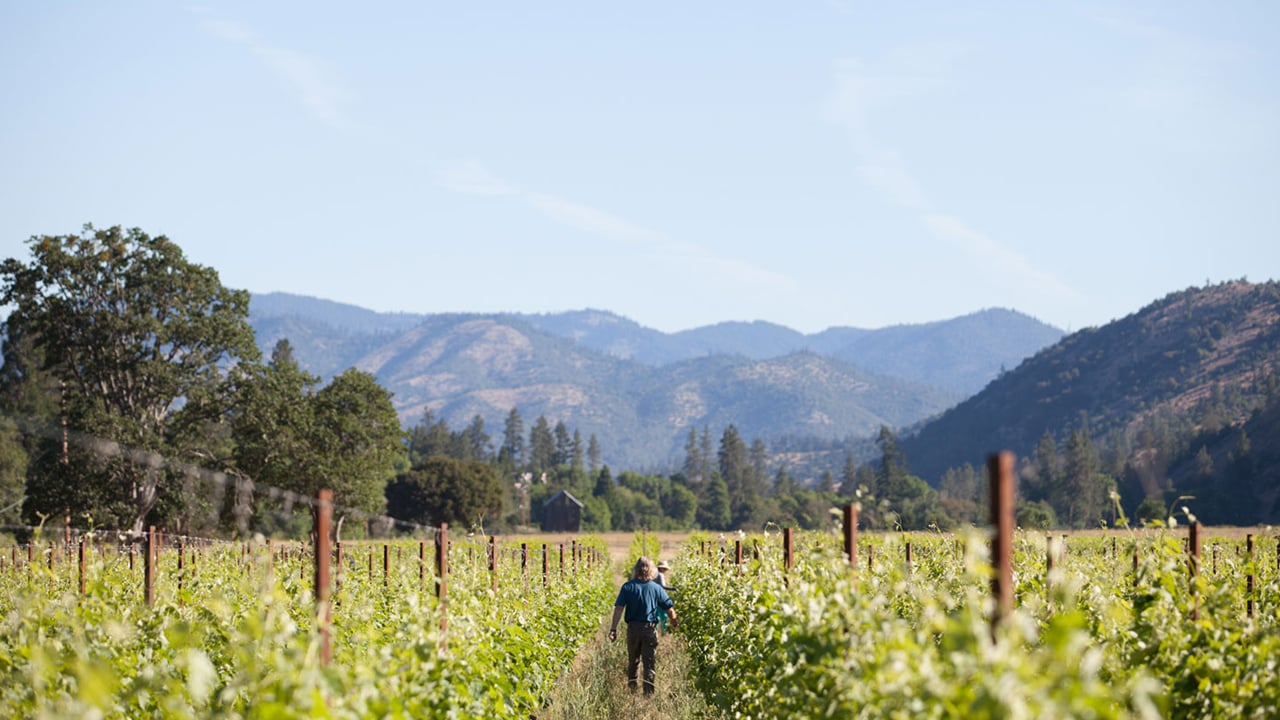
Southern Oregon
Cowhorn Vineyard & Garden in Jacksonville is named for the biodynamic farming method that ferments its wine using yeast strains from the vineyard instead of cultivated yeast. Specifically, they rely on their mixture of composted cow manure stuffed into cow horns, buried underground and left to ferment over the winter. In the spring, the winemakers dig up the horns and apply the all-organic mixture to their vineyard soils. It sounds mystical, but it’s a mainstay of biodynamic farming, which dates back to the 1920s.
No stranger to innovation, Cowhorn’s unique tasting room in the Applegate Valley was also the first tasting room in the world to achieve the highest level of certification of the Living Building Challenge. Exceeding LEED certification, this achievement includes a handful of buildings in the world that are net-positive or net-zero energy, are free of toxins and lower their carbon footprint many times below the structure of the building itself. Cowhorn’s wines are a favorite among vino enthusiasts nationwide.
Celebrate this biodynamic winery nearby: Troon Vineyard in Grants Pass.
Also don’t miss: Schultz Wines in Grants Pass is also LIVE-certified and Salmon-Safe, and perfect for picnics with stunning views of the Applegate Valley vineyards and mountains. Resident Australian shepherds Kayla and Mick will greet you at the solar-powered tasting room.
